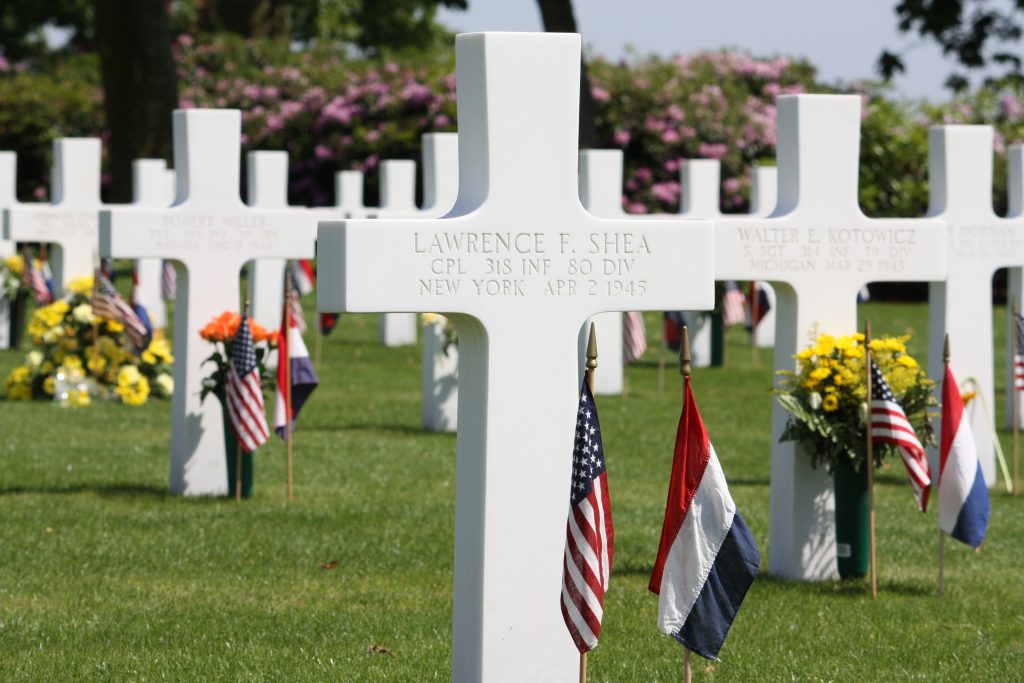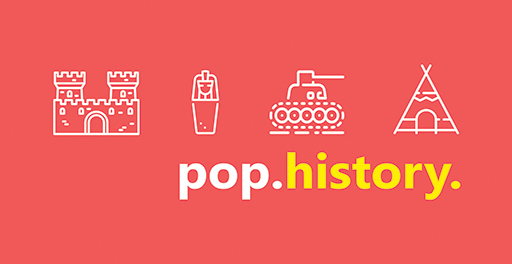Memorial Day Amerikaanse Begraafplaats in Margraten in 2017.
De volgende woorden werden door mij op 28 mei 2017 uitgesproken in het Huis van de Burger van de gemeente Eijsden-Margraten, voorafgaand aan de jaarlijkse Memorial Day herdenking op de enige Amerikaanse Begraafplaats van ons land.
Your excellencies
Ladies and gentlemen
I would like to thank Mayor Akkermans for offering me today once again the opportunity to speak to you. Some of you might remember I did so as well about 2.5 years ago, prior to the annual Liberation Concert. Much has changed since. The world has changed for sure, for the worse of the better.
Much has also happened to The Faces of Margraten tribute, about which I spoke the first time as well. We have organized the tribute twice now. Both times, over 20,000 people came to the cemetery to meet the soldiers whose photos were on display, 4,100 in total. Being able to look the soldiers, our liberators, our heroes, in their eyes moved people, brought the soldiers back to life. I’d like to thank our partners like the ABMC, Province of Limburg, the U.S. Embassy, the municipality of Eijsden-Margraten, the Foundation for Adopting Graves, and others for their support. And I would like to thank our volunteers for their tiredless efforts to locate more photos. Next year, we will finally be able to put a face to more than half of the soldiers, so more than 5,000. Mind you, we started out with less than 2,000.
However…, above all, I have changed.
Why do we remember? People have gathered ever since 1945 to observe Memorial Day to honor the men and women whose lives were taken so others could live in freedom. Moreover, it always is a moment to pause and reflect upon on the meaning of freedom today, which ever changes and so does the relevance to our lives. That is why we still remember today. It is out of gratitude, but also because we seek to apply the lessons of WWII to today’s issues. Our wish for the future is: this never again.
This is what I have always been told. It changed my thinking. My interest in WWII started out as a fascination. But having read about the death and destruction, the physical disabilities, the psychological traumas, I came to understand that war was not fascinating. Moreover, the soldier whose grave I have adopted, Lawrence Shea, was only 21 when he got killed. This got me thinking too. It could have been me. It can be me, being 24 now. But it don’t want it to be me. So I have come to understand why we must learn.
To define the message I want to spread with The Faces of Margraten, I started to look more closely at the world around me. And I wondered… Is this the world that you had in my mind when you told me that we should learn? A world in which your skin color or gender can make that you are seen as inferior. A world in which you are told to return to your country of origin if you don’t like it, as if you don’t have a right to speak. A world in which every Muslim might be considered to be a potential terrorist. A world in which people cheer when refugees drown and commend to bomb the hell out of other areas as if other lives do not matter. People mourn their own victims, but shrug their shoulders when it comes to the deaths of others. A world in which homosexuality is seen as an unacceptable choice. A world in which Jewish, Islamic, and Christian institutions need guards. A world in which facts are replaced by alternative facts to deny for example climate change. Where the national interest or interest of allies is put over human rights in world politics. A world in which the blame is on the other, but not on us. A world in which we emphasize the difference, but not what unites us.
If anything, you would think we would have learned from WWII the great threat of the manipulation of facts, of demonizing, stereotyping groups to the rights and lives of every individual. But sometimes, those who say the loudest that we must learn seem to have learned the least. Sometimes I can’t help to wonder whether we see freedom as a universal right or a personal privilege, whether we are as tolerant as we claim to be? And thus I sometimes wonder: what’s the use of my work? Is this what we, as a humanity as a whole, have learned? My outlook on the world has profoundly changed. Unfortunately, for the worse.
The power of The Faces of Margraten is that we relate to, and are moved by, that person on the photo. We put ourselves in their shoes and try to understand what they went through and why. And perhaps that is what we should aim to do more often. Too often we assume we know someone’s intentions, their feelings, what they are capable of, what is best for them. We tend to judge without asking and knowing someone, because we have heard, seen, or read something. However, without, we might not understand how, unknowingly perhaps, our perceptions, expectations, and actions may restrict somone’s freedom because it impacts one’s self-image and esteem. Without, we won’t see the nuance, and get to understand each other. For sure, we are not always right.
Luckily, I have found many people to be exceptions to this, and these examples are somewhat extreme. Moreover, of course, we cannot bring about world peace on our own. Thinking we can will only leave us discouraged. What can I do? But to be sure here, freedom is not just about world peace for me. Even by the smallest gesture you can start doing something for someone else’s freedom. By stepping in someone else’s shoes, by talking to them, but also by helping those in need, by volunteering in your community, by stepping up to that bully or other injustices, and, above all, by treating others the way you want to be treated. I am not advocating to deny the existence of problems, but to value an individual for his or her own actions, good or bad, not on basis of the group he allegedly belongs to, and to be open to having our views challenged. A small step in the right direction.
But whatever it is that you do, I hope that when you leave today, or when you visit next year’s The Faces of Margraten tribute, that you will not only be impressed and then leave it at that, but that you will indeed be inspired to do something yourself, even if it is something small. We Throw The Thorch To Be Yours To Hold It High. A fitting inscription at the cemetery. Now it is up to us. Let’s put in practice what you have been telling me to learn. Step by step.
Thank you.

